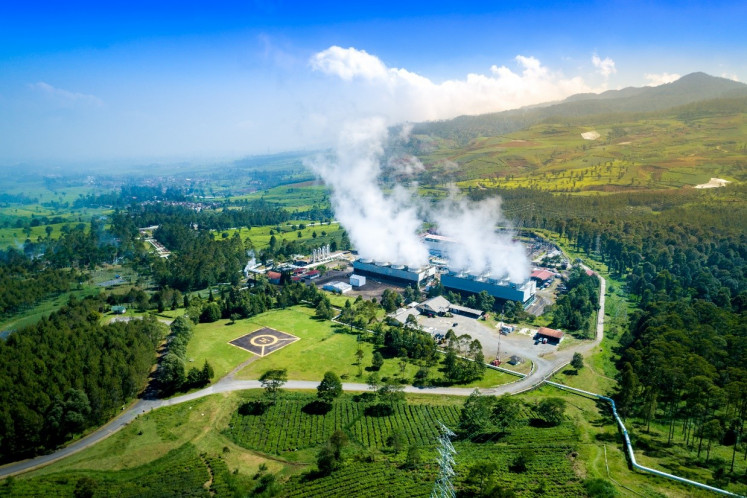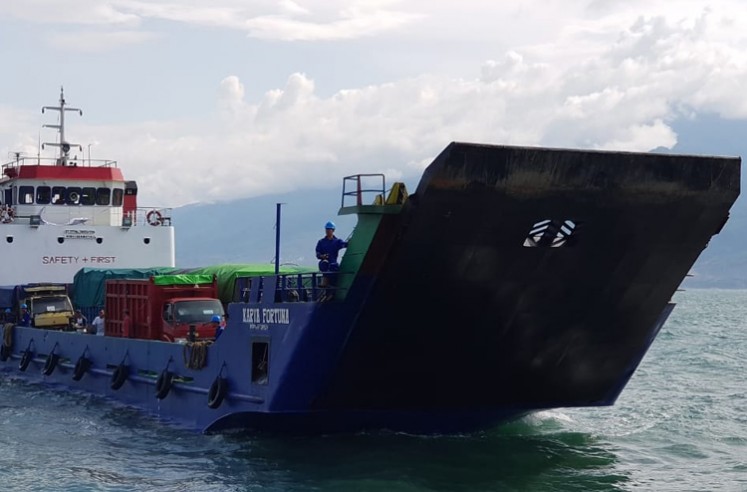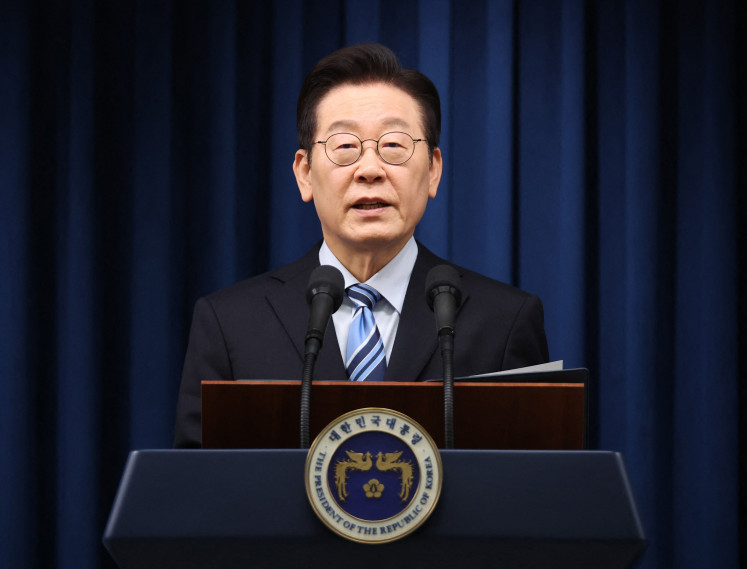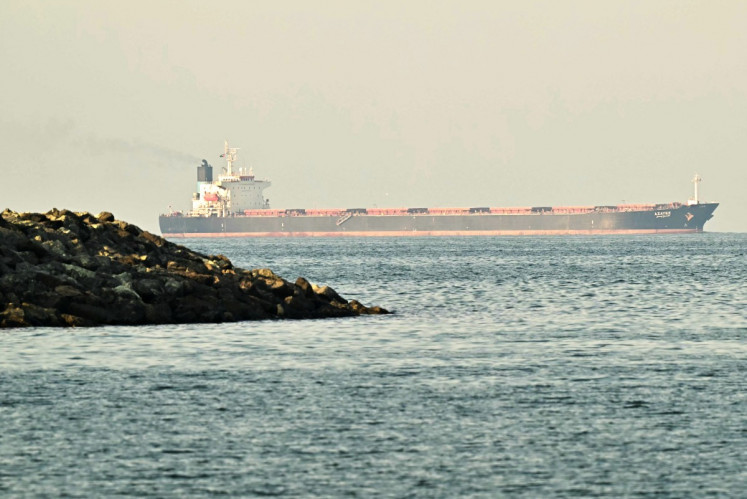Popular Reads
Top Results
Can't find what you're looking for?
View all search resultsPopular Reads
Top Results
Can't find what you're looking for?
View all search resultsMinistry of Finance rule 2024 PNBP for Environmental Sustainability
Change text size
Gift Premium Articles
to Anyone
T
he Ministry of Finance (Kemenkeu) ensures that non-tax state revenues (PNBP) 2024 will lead to increased innovation and quality of service as well as sustainability of life.
"The 2024 PNBP policy direction is directed at optimizing PNBP, strengthening governance and business processes, increasing innovation and service quality, as well as maintaining environmental sustainability," said Director of PNBP SDA and KND of the Directorate General of Budget (DJA) Rahayu Puspasari.
Rahayu Puspasari also revealed the realization of the highest PNBP occurred in 2022, in the period recorded since 2019. But for the 2024 state budget (APBN), the PNBP projection decreased to Rp 492 trillion. "The highest PNBP realization occured in 2022, reaching Rp
595.6 trillion," Rahayu added.
According to data from LKPP and SPAN, the realization of PNBP in 2019 reached Rp 409 trillion, followed by a decline in 2020 to Rp 343.8 trillion. Furthermore, Puspa explained that a decline of 15.9 percent was the impact of the COVID-19 pandemic. However, it grew to Rp
458.5 trillion in 2021. "Fluctuations in PNBP growth are mainly influenced by developments in commodity prices for crude oil, mineral and coal, CPO, as well as service innovation," she said.
This year, the PNBP realized as of August reached Rp 402.8 trillion or reached 91.3 percent of APBN target. "The main thing comes from increasing SDA and KND income," explained Puspa.
. (Courtesy of Finance Ministry/.)One of the obstacles of PNBP in terms of natural resources (SDA) is the utilization that has not been optimal yet. There are still several challenges such as illegal uses, including illegal fishing, mining and logging. With these challenges, the PNBP policy in the 2024 APBN is directed at making more optimal use of natural resources and optimizing BUMN dividends by considering profitability, investor perception, regulations and covenants along with expanding performance improvements.
For PNBP SDA in the oil and gas sector, policy aims to improve regulations in a more comprehensive manner and optimize the governance of upstream oil and gas assets. As well as the full implementation of digitalization of upstream oil and gas data through an integrated information system for effective oil and gas monitoring and reporting.
Revenue from the forestry sector of natural resource will be attributed to improve governance, implement permits, and optimize production. Moreover, revenue from fisheries natural resource will focus on policies for managing the use of fisheries natural resources based on Legal, Regulated, and Reported Fishing (LRRF). Meanwhile, geothermal natural resource revenues will lead to policies to accelerate production, efficiency and use of information and communication technology (ICT). Furthermore, for non-oil and gas natural resources PNBP, policies are directed at focusing on each source of income. Mineral and coal
natural resource revenues policies are focused on addressing the moderation in commodity prices.
Continuing with the 2024 PNBP policy for managing Separated State Assets (KND) is to transform BUMN through improving governance, as well as implementing Environmental, Social, and Governance (ESG) aspects in every investment made. The PNBP policy direction also includes monitoring the effectiveness of PMN performance on BUMN businesses as agents of change to encourage better
Meanwhile, the K/L PNBP policy that will be implemented in 2024, especially in facing the challenges of commodity price volatility, uneven service quality, and improvements in governance that are not optimal yet, the government will make the following efforts: firstly by increasing innovation and service quality; followed by optimizing BMN asset management to make it more productive; as well as improving governance and increasing potential exploration and monitoring of PNBP; fourthly by adjustment of PNBP types and rates; and also by increasing cooperation/synergy with related agencies/parties; and lastly by expanding the use of information systems.
Based on the main services provided to the community, PNBP K/L is expected to make the largest contribution in 2024. The performance of the Ministry of Communication and Information (Kemenkominfo) as one of the six largest contributors to PNBP K/L has experienced significant growth. Primarily, Kemenkominfo is optimizing PNBP from Radio Frequency Use Rights Fees and Telecommunications Operation Rights Fees as well as potential PNBP related to the revision of Government Regulation Number 80 of 2015 concerning Types and Tariffs for Types of PNBP at the Ministry of Communication and Information in the form of adjusting rates and new types of PNBP.
With contribution from Kemenkominfo, the specific agency will become the biggest contributor of RAPBN 2024, with 66.5 percent of the total PNBP K/L. This new type of PNBP includes, among other things, several types of telecommunications equipment certification/testing, Electronic Certification BHP, functional training, use of facilities and infrastructure, as well as administrative fines.
Turning to the Public Service Agency (BLU), this service will face challenges such as maintaining a balance between improving quality and affordability, commodity price volatility, the need for easy access to financing for MSMEs, and increasing operational efficiency. APBN revenue and BLU service revenue (PNBP) are the main sources of revenue for the Public Service Agency as resources in providing services to the community in accordance with their duties and functions.
Responding to the aforementioned challenges, the BLU policy direction in 2024 will cover increasing ease of access to BLU services through the use of information technology; followed by Integration and synergy of resources between BLUs to increase BLU assets and support economic transformation; as well as through Innovation in funding/financing sources in the context of increasing economic transformation; and lastly by modernization of complete services.
Source: The Finance Ministry












